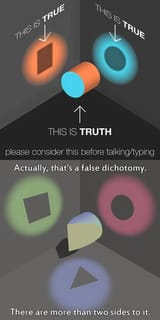Anonymous
7/22/2025, 12:25:09 AM No.24571127
Not every early Christian thought Jesus was divine. The Ebionites, a Jewish-Christian group, saw him as a prophet and the Messiah a human picked by God, not God in the flesh. That makes sense if you think about the Jewish roots here. “The Lord our God, the Lord is one” (Deuteronomy 6:4) was the heartbeat of their faith, just like it was for Moses or Solomon. Jesus claiming to be God would’ve been a total curveball in that world.
In the New Testament, too, Mark the first gospel never has Jesus saying he’s God. When a guy calls him “good teacher,” Jesus brushes it off: “Why call me good? Only God’s good” (Mark 10:18). Sounds like a prophet keeping the focus on God, not himself. It’s only in John, written way later, that you get lines like “I and the Father are one” (John 10:30).
Say what you will about the Jews avoiding pronunciation of the Divine Name. They never REMOVED it. It takes a special type of sleaze to do that. But somewhere from early on, people with such qualities removed the Name for Lord (kyios) in the Septuagint, which has enabled a furtherance of the trinity doctrine. Prior to that, it had been either ‘YHWH’ transposed into Greek or the Greek equivalent letters (IAO) employed in that Hebrew-Greek translation.
The only question becomes, not whether there was fraud or not—there clearly was—but did the NT writers catch it? The record of extant NT manuscripts so far suggests they did not. Surely the Word of God will not be transmitted through such devious methods! That’s why translators of the NWT proposed a theory that, just as the Name was quickly defused in the OT, and removed in the Greek Septuagint, the same thing may well have happened with early Christian manuscripts.
Frankly, I suspect the New Testament writers DID search out the uncontaminated Septuagint copies. At least two such manuscripts date from the first century. A change so fundamental as that, removal of the divine name for ‘lord’ must surely have caught someone attention. It would be like attending the Kingdom Hall for years and years, then one day discovering it had been renamed the Empire Hall. Someone would have noticed that.
In the New Testament, too, Mark the first gospel never has Jesus saying he’s God. When a guy calls him “good teacher,” Jesus brushes it off: “Why call me good? Only God’s good” (Mark 10:18). Sounds like a prophet keeping the focus on God, not himself. It’s only in John, written way later, that you get lines like “I and the Father are one” (John 10:30).
Say what you will about the Jews avoiding pronunciation of the Divine Name. They never REMOVED it. It takes a special type of sleaze to do that. But somewhere from early on, people with such qualities removed the Name for Lord (kyios) in the Septuagint, which has enabled a furtherance of the trinity doctrine. Prior to that, it had been either ‘YHWH’ transposed into Greek or the Greek equivalent letters (IAO) employed in that Hebrew-Greek translation.
The only question becomes, not whether there was fraud or not—there clearly was—but did the NT writers catch it? The record of extant NT manuscripts so far suggests they did not. Surely the Word of God will not be transmitted through such devious methods! That’s why translators of the NWT proposed a theory that, just as the Name was quickly defused in the OT, and removed in the Greek Septuagint, the same thing may well have happened with early Christian manuscripts.
Frankly, I suspect the New Testament writers DID search out the uncontaminated Septuagint copies. At least two such manuscripts date from the first century. A change so fundamental as that, removal of the divine name for ‘lord’ must surely have caught someone attention. It would be like attending the Kingdom Hall for years and years, then one day discovering it had been renamed the Empire Hall. Someone would have noticed that.
Replies:
